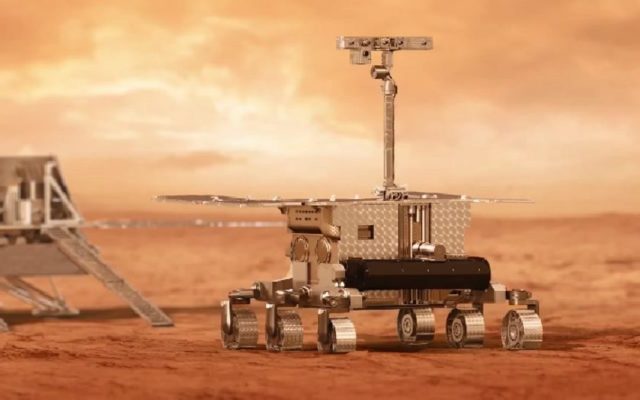According to the head of the European Space Agency, if earlier cooperation with Russia was only formally suspended, then the deal with NASA on ExoMars will mean the final termination of the partnership.
The European Space Agency (ESA) is considering the possibility of taking its equipment from Russia for the ExoMars 2022 mission, [...] head of the department Josef Aschbacher said at a press conference.
"Most of the ExoMars equipment is in Italy with Russian components. Similarly, we have other equipment in Russia. And we need to discuss a plan of action. Europe needs to get its components back, and the Russians want to get theirs back," he said. The mission, apparently, in any case, will be postponed at least to 2026, since it is impossible to launch earlier (the launch window opens every 26 months).
NASA is likely to become a new partner for ESA: it is from the American National Aeronautics and Space Administration that support is expected. "Bill Nelson (NASA administrator. — Editor's note) gave us a clear indication: NASA wants to help Europe in this situation," Ashbacher added.
As for relations with Roscosmos, which were put on pause at the beginning of March due to a special operation in Ukraine, it is likely that the partnership will come to an end when ESA agrees with the United States (this should be clarified in the coming weeks). Negotiations with Russia in mid-June, according to Ashbacher, despite various rumors, were focused exclusively on the details of the end of cooperation.
The head of ESA claims that the severance of ties with Moscow will not affect European research activities, because 80 percent of their planned projects have been preserved. "Most of our programs are not connected with Russia. People forget that our two or three projects with the participation of Russia are just a few of the many," he said he's in a comment for Reuters.
The Russian space agency confirmed that they are discussing an option with the mutual return of equipment. "According to the information provided by ESA, a regular meeting of the Council of ESA member states is planned in July 2022, following which the European side will decide on the future of the project," the press service of Roscosmos reported.
The goal of the ExoMars program is to search for organic molecules or signs of life on Mars. The first stage was implemented in 2016, the launch was carried out from the Baikonur cosmodrome. This part of the mission was only partially successful: the Schiaparelli descent module crashed during landing due to premature shutdown of the braking engines. Another component of the program is the Trace Gas Orbiter orbital probe, which in the spring of 2018 successfully began exploring the atmosphere of the Red Planet.
The launch of ExoMars 2022 has been postponed several times, but recently it was planned to be held this September. Russia has pledged to provide a Proton-M launch vehicle, a descent vehicle and a Kazachok landing platform. In 2023, after landing on the Red Planet, the autonomous six-wheeled rover Rosalind Franklin from ESA was supposed to join two rovers, a NASA lander and a Chinese spacecraft already on the surface of Mars. "Kazachok", in turn, would continue to operate as an automatic station.
After the suspension of cooperation, the head of Roscosmos, Dmitry Rogozin, stated that Russia itself was implementing the mission or would find other partners. However, Rosalind Franklin would have to be abandoned, and the preparation of the launch would be delayed for several years. Moreover, they could not return the "Cossack" located in Italy [...] due to the suspension of air traffic with the European Union. As a result, the program may lose its main components.
You can read more about ExoMars on the page of the Naked Science and Roscosmos joint project .

